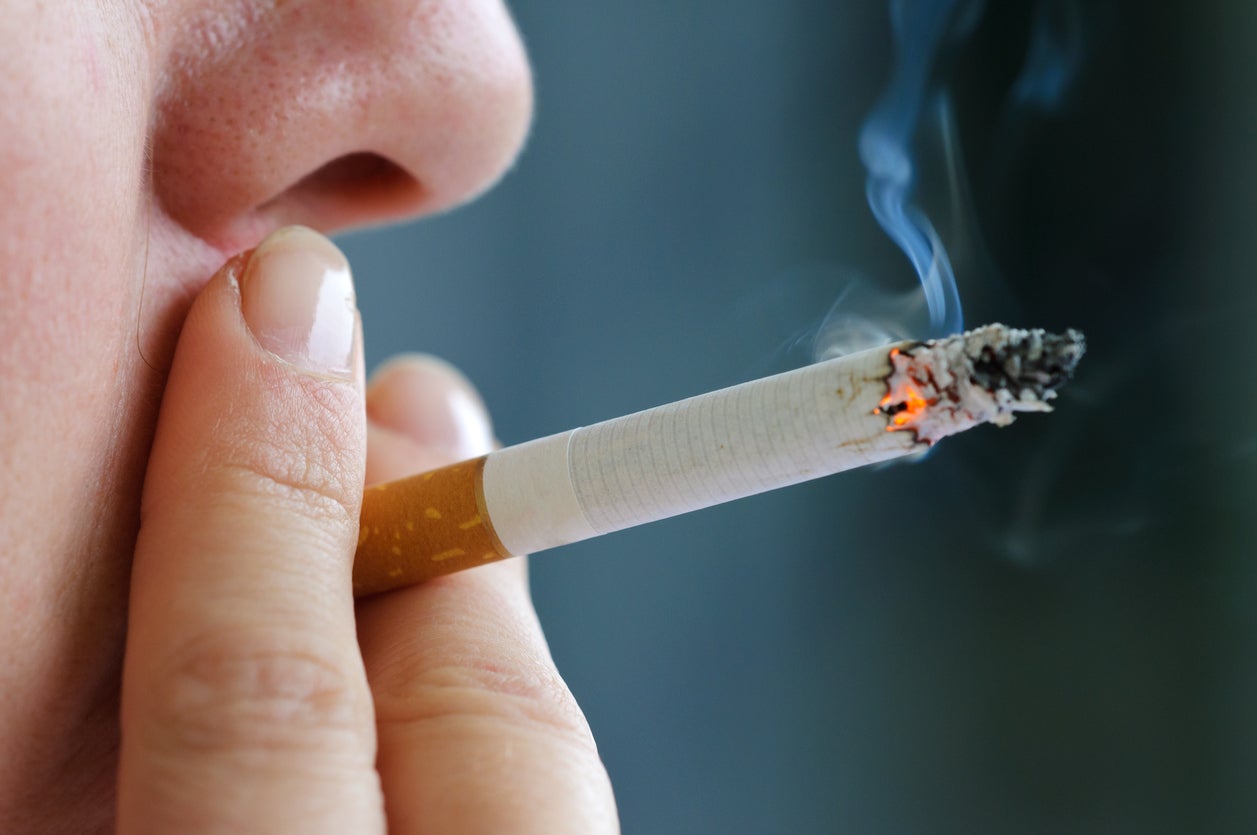Smokers at higher risk of losing their hearing, suggests study
Smokers up to 60 per cent more likely to lose hearing than non-smokers

Your support helps us to tell the story
From reproductive rights to climate change to Big Tech, The Independent is on the ground when the story is developing. Whether it's investigating the financials of Elon Musk's pro-Trump PAC or producing our latest documentary, 'The A Word', which shines a light on the American women fighting for reproductive rights, we know how important it is to parse out the facts from the messaging.
At such a critical moment in US history, we need reporters on the ground. Your donation allows us to keep sending journalists to speak to both sides of the story.
The Independent is trusted by Americans across the entire political spectrum. And unlike many other quality news outlets, we choose not to lock Americans out of our reporting and analysis with paywalls. We believe quality journalism should be available to everyone, paid for by those who can afford it.
Your support makes all the difference.Smokers are not just putting themselves at risk of heart disease and cancer but may also be endangering their hearing, Japanese researchers have said.
A new study has found that current smokers were at a higher risk of hearing loss than non-smokers – with that risk apparently increasing with each cigarette smoked. However, kicking the habit appears to reduce this risk again, the scientists said.
The authors said the findings provides “strong evidence” of a link, and called for new tobacco control measures to try and prevent or delay hearing loss.
The study, published in the journal Nicotine and Tobacco Research, tracked the lifestyle habits and health of more than 50,000 Japanese workers.
Using data drawn from records of annual health checks, which include a hearing test, the team looked at how workers’ ability to detect both high and low pitch (frequency) sounds changed.
The results show smokers were 60 per cent more likely to develop high-frequency hearing loss, compared to non-smokers, and 20 per cent more likely to lose some ability to hear lower frequency sounds.
One in 10 workers developed some form of hearing loss over the eight-year study, and the more cigarettes a worker smoked each day the higher their risk of developing hearing loss, the study found.
“These results suggest that smoking may be a causal factor for hearing loss, although further research would be required to confirm this,” the authors write.
The authors point out the study only shows a relationship between smoking and hearing loss, and that is does not prove one causes the other.
They also note that the smoking group were more likely to work in manual and heavy industries which can increase the likelihood of hearing loss, though they tried to control for this statistically.
Lead scientist Dr Huanhuan Hu, from the National Centre for Global Health and Medicine in Japan, said: “With a large sample size, long follow-up period, and objective assessment of hearing loss, our study provides strong evidence that smoking is an independent risk factor of hearing loss.
“These results provide strong evidence to support that smoking is a causal factor for hearing loss and emphasise the need for tobacco control to prevent or delay the development of hearing loss.”
Join our commenting forum
Join thought-provoking conversations, follow other Independent readers and see their replies
Comments